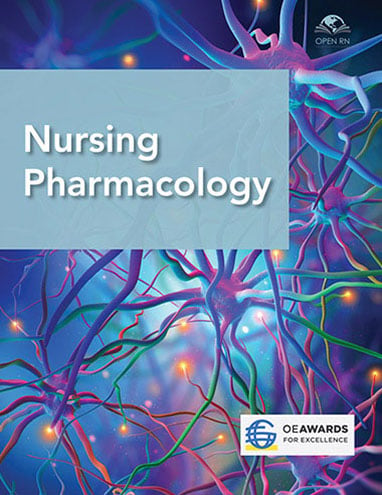XanEdu FlexEd Nursing Pharmacology is designed for entry-level undergraduate nursing students and introduces the principles of pharmacology, including drug classifications and their effects on the body. Emphasis is on the use of the components of the nursing process when administering medications. The course content is aligned with NCLEX Test Plans (for all nursing programs) and is leveled for entry-level nursing students. The Nursing Pharmacology OER textbook accompanying this courseware has been peer-reviewed by over 30 national reviewers from both 2- and 4-year nursing programs.
Schedule a Personal Demo.
Let us help you deliver the perfect course for your students!

Suitable for:
Entry-level undergraduate nursing students. We will customize to fit your class.
Great for:
In-person, online or blended learning.

XanEdu FlexEd knows that the way you teach is unique. That’s why we allow you to take what we’ve built and use it as-is, or modified to fit your syllabus.
Our simple editing process allows you to rearrange, add or remove content, embed videos, links or change quiz questions to better match your course.
Need to collaborate with other instructors? With XanEdu FlexEd you can share your content with colleagues. Life just got a lot easier.

Accessible: Available on the Web, with the iPad app, or as a direct link from your LMS. No downloads, plug-ins or pop-ups necessary.
Onboarding Support: Training videos and access to actual human beings will help you get your course launched smoothly.
Easy to Purchase: Students simply register and buy, and we can work with your bookstore as needed.

Editors
This book was edited by:
Developing Authors
Developing authors remix existing open educational resources and build content from evidence-based sources.
Contributors
Contributors to the development of the Nursing Pharmacology OER textbook include educators, librarians, and staff from a variety of Wisconsin Technical Colleges. See the full list of Contributors and Advisory Committee members and Peer-reviewers.

Topics are introduced with short, engaging videos. Text readings and practice activities provide detail and enable applied learning.
You’ll know how much time your students are spending learning, what material they’re working with, and when they lose engagement, so you can keep them on-track.
All material is loaded and ready-to-go, including video, textbook, discussion boards, in-class presentation, quizzes and practice activities.
XanEdu FlexEd courses are 80+% less expensive than alternatives. No extras needed. Honest.